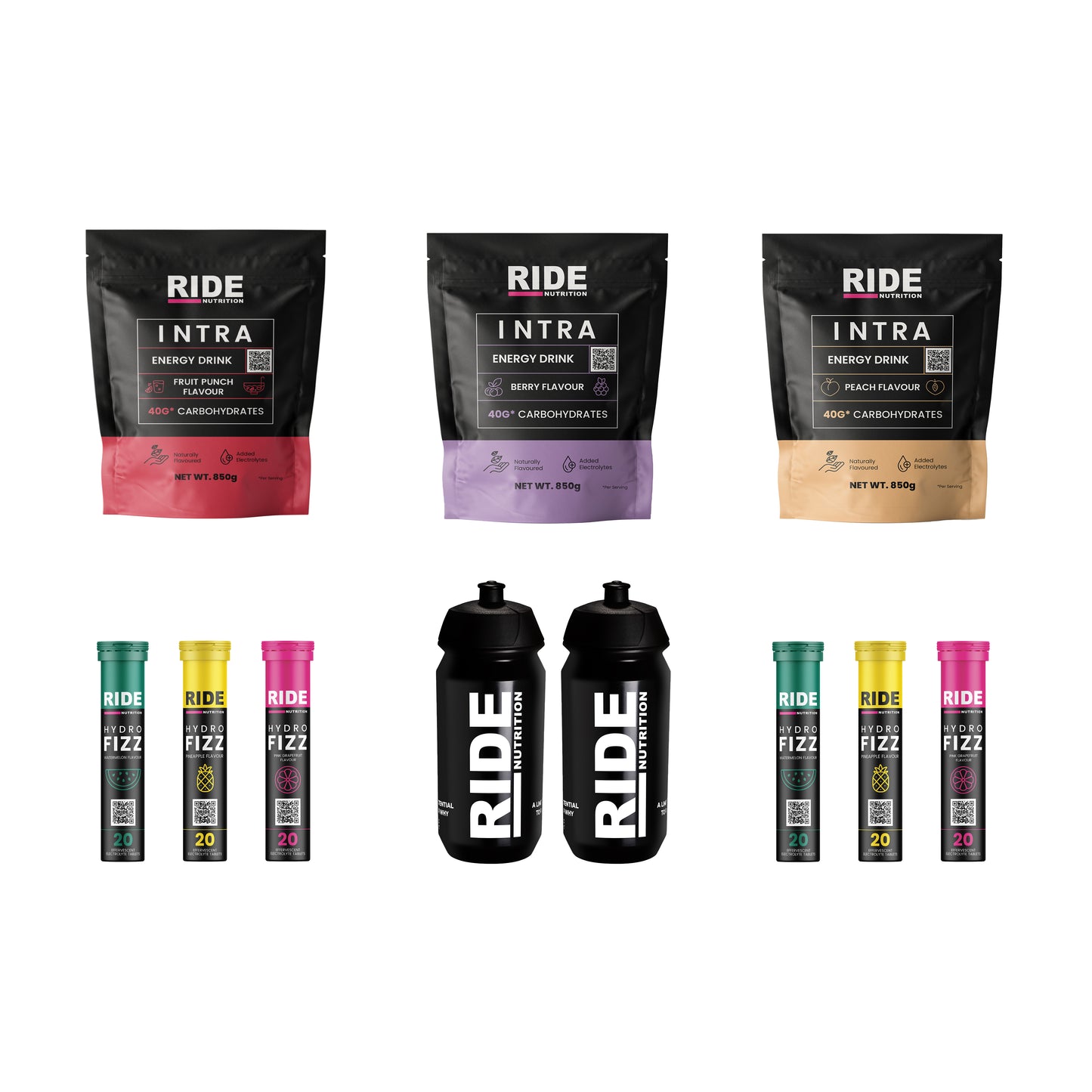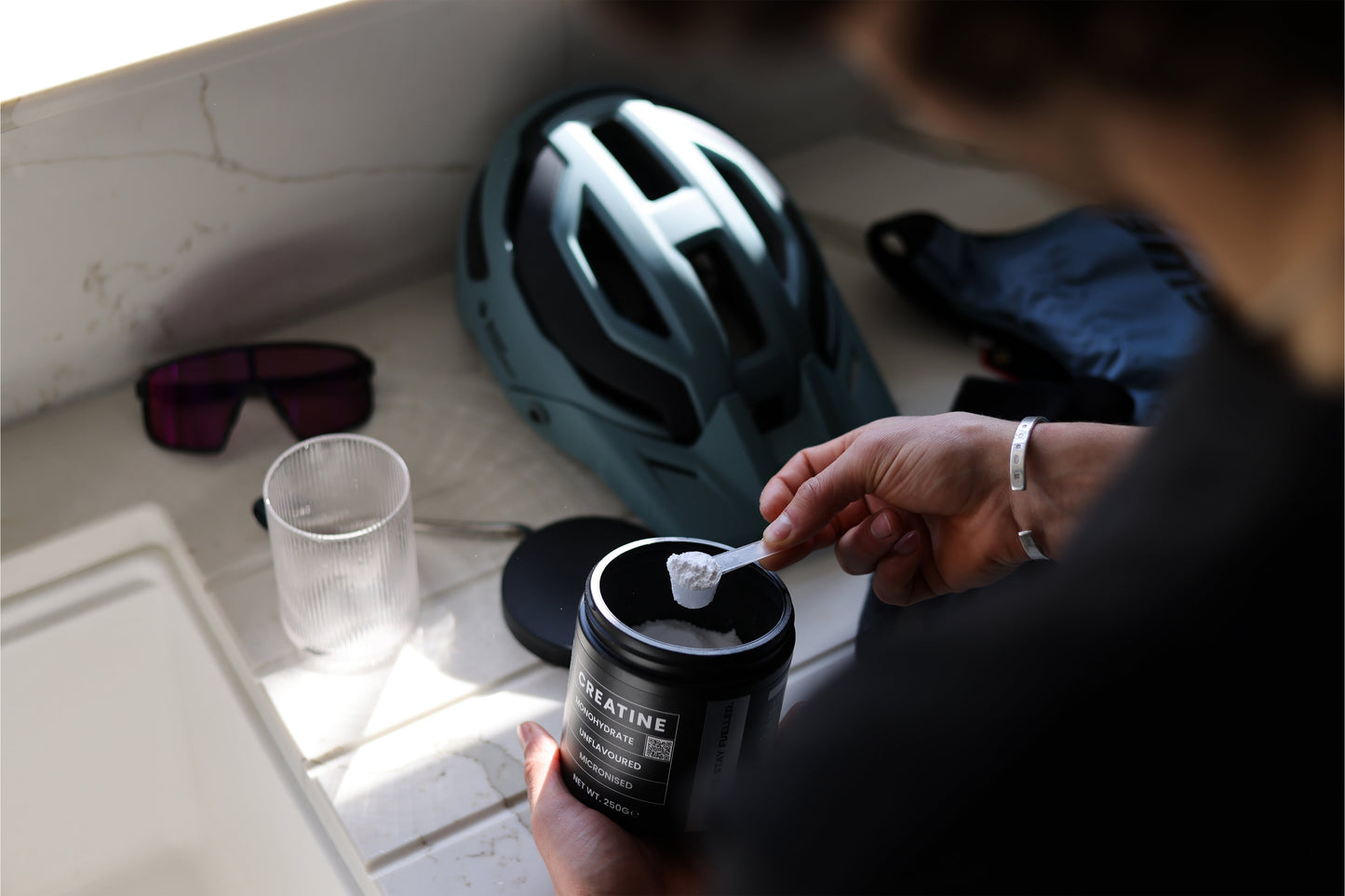Guides & Insight
What Is Beta Alanine?
Beta-Alanine: Helping You Push Harder for Longer In the world of Action Sports, whether it's long-distance cycling, trail running, triathlon, or mountain biking - performance often comes down to how long you can sustain efforts before fatigue sets in. That’s where Beta-Alanine enters the scene! Recognised for its role in improving muscular endurance, Beta-Alanine is one of the few supplements with strong scientific backing for its effects on high-intensity and endurance performance. What Is Beta-Alanine? Beta-alanine is a naturally occurring non-essential amino acid. Unlike other amino acids, it doesn’t directly build proteins. Instead, its primary function is to boost levels...
Creatine Monohydrate For Action Sports
Creatine Monohydrate: Enhancing High-Intensity Performance in Action Sports Creatine monohydrate is one of the most extensively studied and widely used sports supplements on the market — and for good reason. Often misconceived as a supplement just for those looking to increase mass, this couldn't be further from the truth. Creatine is a naturally occurring compound found in small amounts in the body, primarily in the muscles. Foods such as beef, salmon, tuna and pork are sources of creatine, but eating adequate amounts of these foods to obtain a daily 5g dose can be difficult. That's where Creatine Monohydrate supplementation comes...
Arm Pump
What Is Arm Pump? If you ride bikes, whether that’s motocross, enduro, MTB or road racing the likelihood is that you’ve experienced it! Arm pump is one of the most talked about exercise induced conditions associated with two wheeled action sports. But what actually is it and what is the root cause? Chronic Exertional Compartment Syndrome (CECS) According to the literature, the underpinning condition resulting in the onset of ‘arm pump’ related symptoms is Chronic Exertional Compartment Syndrome (CECS). CECS is defined as an increase in intracompartmental pressure within the muscle fascia, resulting in reduced blood flow and tissue perfusion...
Carbohydrate Fuelling
Glucose & Glycogen Did you know that glycogen is the most efficient fuel source for our body to use during exercise? If you have read our article covering the importance of carbohydrates, you will know that glycogen is essentially the storage of excess glucose in the liver and muscles. But where do we get the glucose from in the first place? The answer to that question is carbohydrates! Depletion Of Glycogen Stores As intensity increases, so too does muscle glycogen usage. With this being said the glycogen stores in our muscles and liver are limited. It can be expected that...





